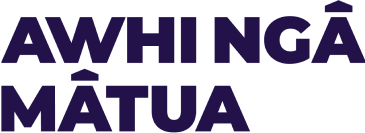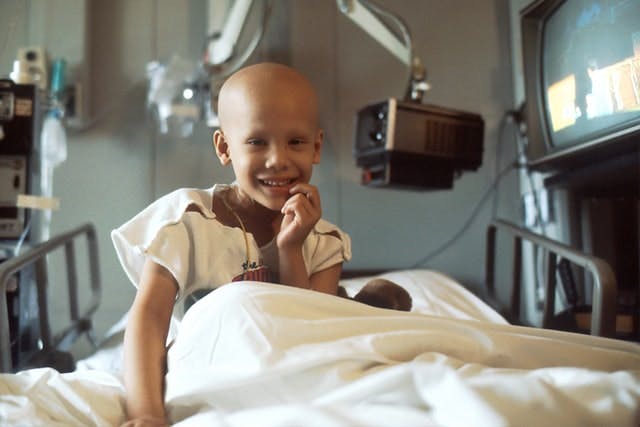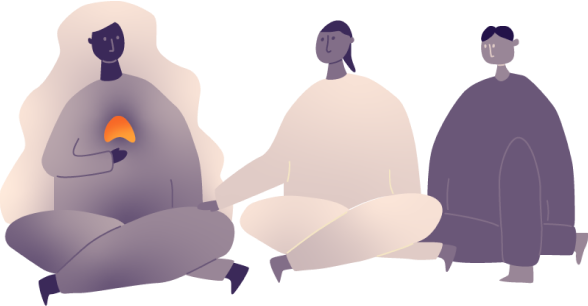Awhi is still in development, we'd love your feedback and suggestions. Let us know.
How to ask your carer if they’re vaccinated
Many of us are having to have conversations that take courage with our carers and relatives. The _Awhi Ngā Mātua _community has come up with some scripts to help you to talk to your carer about vaccination.
If your child has a carer, remember these three key points:
1. You are allowed to ask an employee to provide evidence of their vaccination status, or
2. Employees do not have to give you that information if they do not wish to.
3. If they do not wish to share that information, you are entitled to assume they are not vaccinated when carrying out a risk assessment, but they must be aware of this assumption and its ramifications.
You must ensure that medical information about your carer is kept private and make sure they understand that there could be consequences for their employment if they do not disclose their vaccination status when requested.
Be direct: “Have you had your vaccination? Are you planning on getting vaccinated?”
State the law: “Do you know about the government order on healthcare workers? If I can’t be sure that you are vaccinated, we may not be able to continue having you as our carer. If you can’t confirm your vaccination status, I will have to assume you’re unvaccinated.”
In the Covid-19 Public Health Response (Vaccinations) Order, a legal duty to be vaccinated is created that will affect certain people. The duty is as follows: “An affected person must not carry out certain work unless they are vaccinated.”
What’s an “affected person”? Well, that’s anyone who works in a role that has been assessed as being so high risk that vaccination is required. Care and support workers are specifically mentioned as requiring vaccinations 2 and they have a deadline to get their first jab by 15 November 2021, and their second by 1 January 2022.
Your carer must follow the legal duty imposed on them and get vaccinated.
If your carer is unvaccinated set a boundary.
“I am afraid that despite [conversations and time], I still am not confident that you are vaccinated or approaching this issue in good faith. Therefore, I must ask that you not to come back until you have been vaccinated and can provide me with proof of vaccination.”
We know that many families love their carer and this can be a heartbreaking and difficult conversation to have. You can provide options in the hopes that your carer will change their mind and get their vaccination.
“We’re happy to give you two hours of paid work, one hour per vaccination, to get vaccinated.”
“Please take this weekend to think about your options and talk about vaccination with people that you trust.”
“Do you need a ride? Outside of work time is fine. Is there anyone else in your whānau or household who needs a ride to get vaccinated?”
“Do you need to take some leave to consider this issue? I’m happy to provide a day’s paid special leave to give you time to consult with people you trust.”
If your carer decides not to be vaccinated, our community has some ideas on how to help them adjust to life without their career.
-
Share photos and details of the new carer in advance if possible. Have a phone or video call with the new carer.
-
Explain that their carer is still special to the family but is unable to continue their work because of the choices they made. Explain that you can still care about someone but not agree with the choices they make.
-
Write letters to your carer to say goodbye.
-
Write welcome cards for a new carer.
-
Be clear that their routine might change, but that they are safe and we will return to normal with a new carer.
-
Help your child to understand that while a disappointing thing has happened, it’s OK to feel sad or angry. All feelings are valid.
Be kind to yourself. Carers are often part of the family and these conversations are really tough. Reach out in the Awhi community for support.
.jpeg&w=128&q=75)
Tam Clemerson
I'm Tam Clemerson. I am a queer neurodivergent parent. I grew up in Wellington and did my dash in the public service before moving into union advocacy. I am currently studying Law at Vic Uni and spend my time juggling lectures and readings with swimming lessons and football games.
Was this resource helpful to you?


The Awhi Ngā Mātua team would like to thank Takai, the IHC Foundation and the Dines Family Charitable Trust for their generous contributions to our work. A huge thank you also to the IHC Programmes team, in particular the IHC Library which has worked so hard to make their remarkable collection available to us.




.jpeg&w=3840&q=75)




